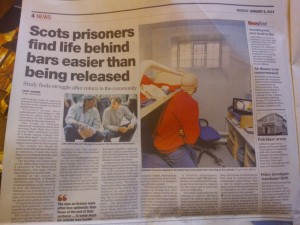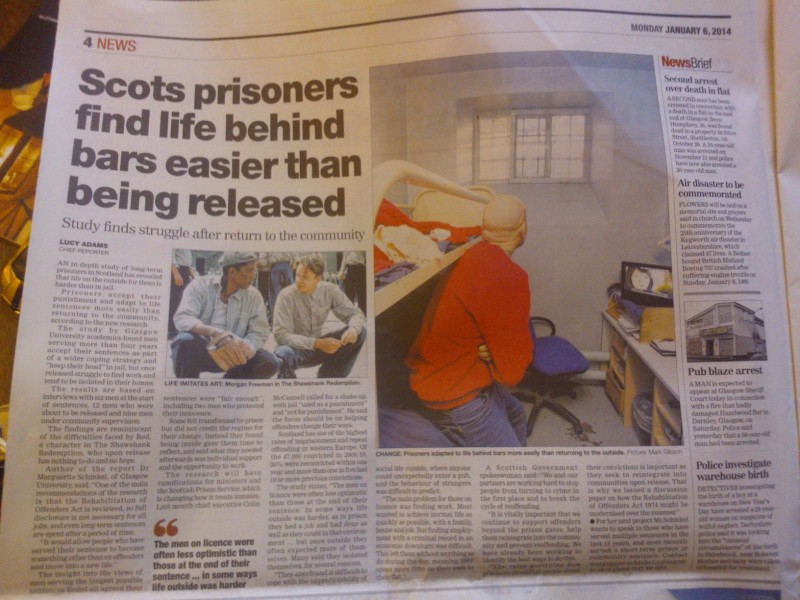
Being interviewed was also a bit nerve wracking, but less so than I expected. I did make a few mistakes, but no matter (although I have to admit I haven’t actually listened to myself, because my accent is SO much stronger than I think, which is worse when it comes from the radio than when listening to interview recordings, for some reason). The programme is available here, but only for another 3 days. My bit is around the 40 minute mark, and lasts all of two minutes (or maybe not even).
The whole process made me realise a few things about engaging with the media. First of all, even when you speak to a friendly and sympathetic reporter, it’s in the nature of newspapers to grab the most attention-seeking headline possible. I’m not sure that ‘Scots prisoners find life behind bars easier than being released’ is the most accurate way to describe my findings. Even though some of my interviewees expressed something like this, I could never claim that they speak for ‘Scots prisoners’ in general and even for them it was only one part of their (often contradictory) story. Second, it seems like there will always be a few inaccuracies. Even though I had corrected the draft article, which mentioned life sentenced prisoners, the article still described my participants as ‘ serving the longest possible sentences’. It also said that the research had been conducted by Glasgow University academics, when it was really just me, as a PhD student at the University of Edinburgh, but I quite like to think of myself as a group of learned people.
The most disappointing thing has been that, even though the article mentioned the Lives Sentenced project and asked potential participants to get in touch, only one person has done so. I am hoping that Positive Prison Positive Futures, a group of people who have been through the criminal justice system and are now helping others to turn their lives around, might help me to find more participants in the community.
Just in case, I thought I’d also appeal to the readers of this blog: if you, or anyone you know, has been punished over at least 15 years, and most recently has served a community or short prison sentences, please have a look at this: Information sheet community. It explains what the research is about, who I am looking for and what participation will mean. It also gives my contact details, so anyone interested – please get in touch! I am hoping to start interviews in February/March.
